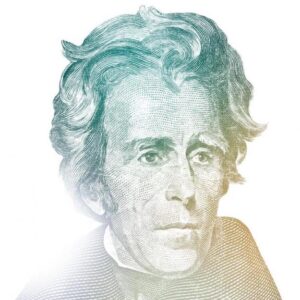…to judge everyone from the past based on the values of today – there truly is no end to how much of history would need to be erased.

On May 12, 1703, the Russian army under Peter the Great captured an important Swedish fort on the Baltic Sea called Nyenskans.
It was a major victory for Peter in his war against the Swedish Empire. Russia was a rising power in the early 1700s, but Peter was in critical need of a Baltic seaport to be able to trade with the rest of Europe…
The capture of Nyenskans was so important that Peter decided to move his capital there. And he renamed it Saint Petersburg.
Technically he called it “Sankt-Pieter-Burch,” which is a Dutch/German spelling of the name; Peter made tremendous efforts throughout his reign to westernize Russia, and naming his capital city in a European style was part of that effort.
Sankt-Pieter-Burch remained the capital of the Russian Empire for hundreds of years, until World War I broke out in 1914.
Germany had become Russia’s enemy. And the imperial government decided that they no longer wanted their capital city named in the German style.
So they renamed the city to Petrograd as a reflection of their updated view.
Lenin and the Bolsheviks took over Russia in 1917 and moved the capital to Moscow. And when Lenin died in 1924, the Soviet government renamed Petrograd to Leningrad.
It remained that way for nearly seven decades until communism finally collapsed in 1991… at which point the city renamed itself once again, back to St. Petersburg.
Frankly this happens all the time. Buildings, cities, provinces, and even entire countries from time to time change their names.
When values change, names change.
By 1991, Russians no longer felt like naming one of their most beautiful cities in honor of a Communist dictator… so they changed it. Big deal.
Zambia used to be called Northern Rhodesia. But after they gained independence they no longer wanted to be named after their imperialist ruler. That’s hardly controversial.
Similarly, nearly every major city in India changed its name in the 1990s and early 2000s; Bombay became Mumbai, Calcutta became Kolkata, Madras became Chennai, etc., all to shake off their colonial roots.
Again, this is perfectly reasonable.
There’s been a broad movement lately of people wanting to rename streets, bridges, airports, buildings, etc. And this too is hardly controversial.
Our social values are remarkably different than they were when many of those landmarks were built. And it’s not unusual for names to change to keep up with the times. There’s nothing wrong with that.
(There IS, however, supposed to be a peaceful, democratic procedure to change names and remove monuments. Only a fool with no intelligent argument resorts to violence and vandalism.)
The problem with renaming stuff, however, is that it can be a bottomless rabbit hole.
If we are supposed to judge everyone who has been dead for hundreds of years against the values that we hold dear today, then there really is no end.
Just look at the currency of the United States:
$1 bill? George Washington… who, despite being the single-most important factor in winning the American Revolution, also happened to be a slave owner.
$2 bill? Thomas Jefferson… also a slave owner.
$5 bill? Abraham Lincoln… who emancipated the slaves, yet also made numerous racist comments (like this quote from his first debate against Stephen Douglas in 1858:
“I, as well as Judge Douglas, am in favor of the race to which I belong having the superior position.”)
$10 bill? Alexander Hamilton. Yes, he has a catchy musical in his honor that promotes him as an abolitionist. But Hamilton married into a prominent slave-owning family, handled transactions regarding the purchase of slaves on the family’s behalf, and even once demanded that a runaway slave be returned to captivity.
 $20 bill? Andrew Jackson. HARDCORE racist. Major slave owner. (which means he’ll probably be the first one to be replaced. So don’t stock up on too many $20 bills…)
$20 bill? Andrew Jackson. HARDCORE racist. Major slave owner. (which means he’ll probably be the first one to be replaced. So don’t stock up on too many $20 bills…)
$50 bill? Ulysses S. Grant… who actually fought (and won) the Civil War. Yet technically did own a slave at one point in his life.
$100 bill? Benjamin Franklin… also a slave owner.
It’s not hard to keep going.
The Commonwealth of Pennsylvania was named after the slave owner William Penn.
The Commonwealth of Virginia was named after the “virgin” Queen Elizabeth I of England, a blatant racist who wrote to the Lord Mayor of London in 1596 that ‘there are too many blackmoors’ in the city and expressed her “good pleasure to have those kind of people sent out of the land.”
The State of Louisiana is named after the King Louis XIV of France, who presided over the enslavement of countless natives across his global dominion.
And let’s not forget that the UNITED STATES OF AMERICA, along with two continents, are named after Amerigo Vespucci– a man who enslaved thousands of people.
Do we rename cities and states? Do we rename the country? (Perhaps we call the entire nation the Republic of CHAZ.)
Do we bother weighing someone’s accomplishments against their shortcomings, or do we condemn everyone for being out of step with our modern values?
We can also apply the same logic to science, literature, philosophy…
 There are so many famous authors from the past who were racist, or misogynist, or raging anti-Semites. Do we stop reading them? Should the mob torch their books?
There are so many famous authors from the past who were racist, or misogynist, or raging anti-Semites. Do we stop reading them? Should the mob torch their books?
Even many of the most prominent minds from Ancient Greece would qualify as bigots today.
Should Aristotle (who believed in ‘natural born slaves’) be banned? Should we stop teaching the Pythagorean Theorem ?
Even Abraham– the common patriarch of Islam, Judaism, and Christianity– was a slave owner.
So, yes, it’s not unusual or controversial to rename anything. But to judge everyone from the past based on the values of today – there truly is no end to how much of history would need to be erased.
Written by Simon Black for Sovereign Man ~ June 17, 2018

Yeah. We’re screwed.
Just a bit ironic that today’s racists and bigots are demanding that we purge any vestige of yesterday’s racists and bigots.